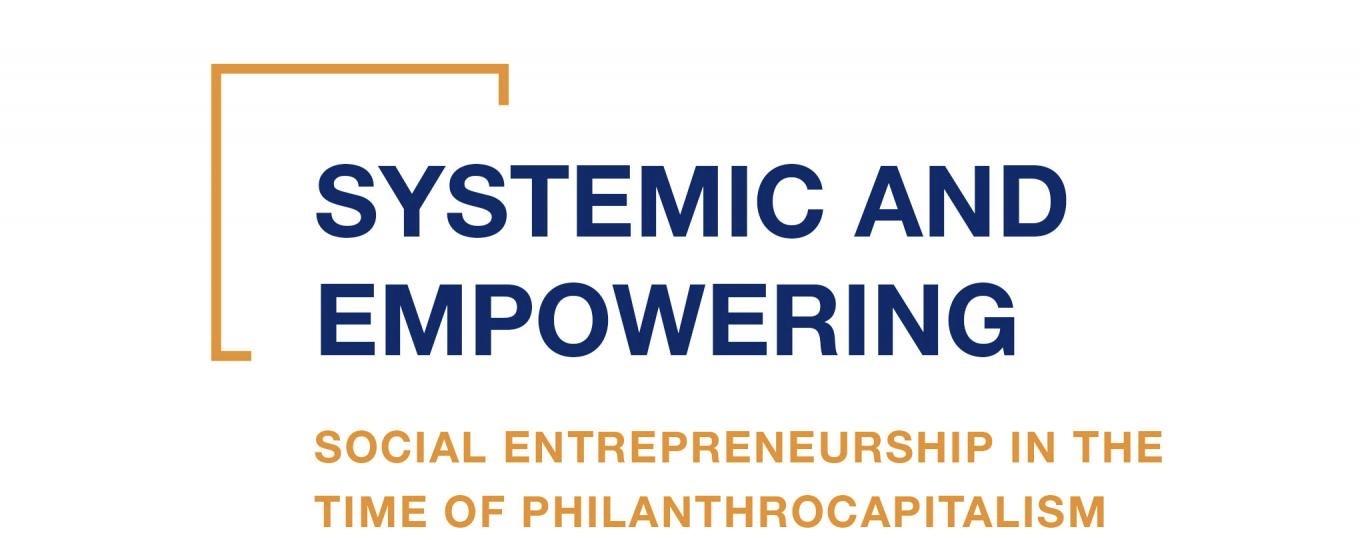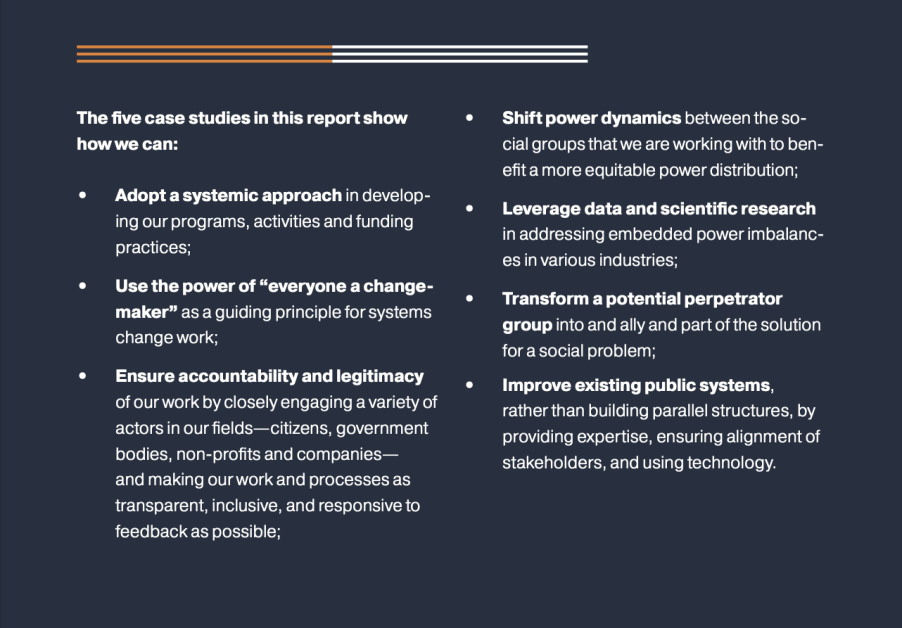
There is vigorous debate about the shortcomings of philanthropy and various private initiatives emerging in the social sector, including social entrepreneurship. Authors have raised questions regarding accountability, democratic practice, and equity in addressing social challenges. Criticisms also include mission drift, not engaging perpetrators, building parallel structures to government institutions, and others.
With this report, the Ashoka Learning and Action Center and the Ashoka Globalizer teams show how social entrepreneurs can contribute to meaningful social change in a way that counters common criticisms. Without diminishing the importance and the relevance of the critical points raised, we highlight practitioners that—through their core work— show how social change can be promoted by private actors in a way that meets critics’ demands for equity and accountability. The goal of this report is to use these concrete examples to better equip the social sector to address the shortcomings of organizational practices that critics articulate.
The social entrepreneurs featured in this report engage whole societal groups to apply empathy in new ways, to self-organize, and to play a more active role for the common good. At Ashoka we call people with these qualities changemakers. The case studies highlight an important insight:
Promoting social change in a way that stands up to current criticisms of philanthrocapitalism goes hand in hand with enabling people to be changemakers and connecting them within systemic approaches. Empowering others to be changemakers is a powerful principle for creating legitimacy and accountability for systems change work.
As intermediary organizations, practitioners, funders, and philanthropists, we all must reflect on our current practices and the long-term negative impact that some of them can trigger. We can learn from the best practices of social entrepreneurs and embed them in our own thinking and acting.
We invite you to reflect on these seven principles when making decisions about how you engage with social problems. Avoid the pitfalls at the core of critical discussions about the current state of philanthropy and private solutions in the social sector by applying these principles.
